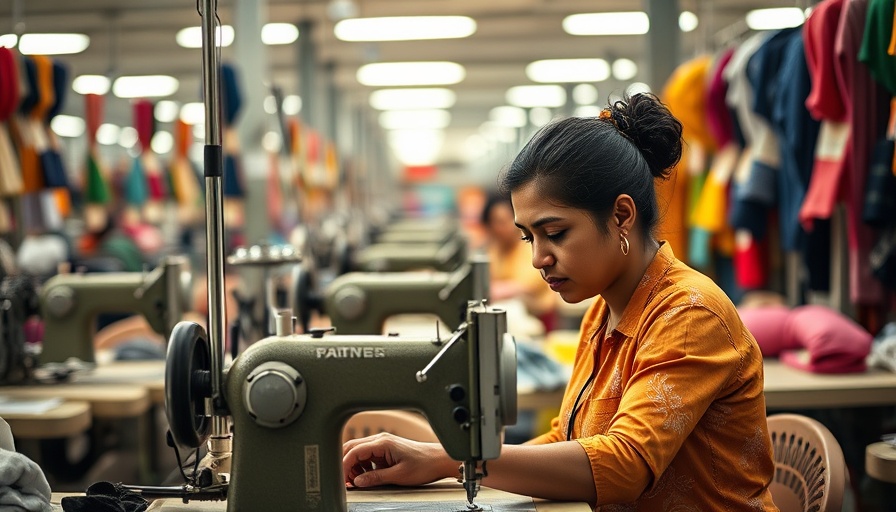
The Impact of Tariff Wars on Global Recovery
In recent years, trade policies have become increasingly influential over global economies, with tariff wars particularly affecting poorer nations. As nations grapple with the long-term effects of Trump's tariff war along with cuts in aid, the prospects for recovery in low-income countries appear bleak. This precarious situation demands attention and action from global leaders and citizens alike.
Understanding the Costs of Tariff Wars
Tariffs, taxes imposed on imported goods, can lead to increased costs for consumers and businesses alike. For poorer nations heavily reliant on exports, especially agricultural products, tariffs can spell disaster. With Trump’s administration focusing its tariff efforts primarily on products from China, countries that depend on cheaper imports find themselves trapped in a cycle of economic hardship and inflated prices.
Aid Cuts: A Double Blow to Vulnerable Nations
Alongside tariff wars, cuts to international aid exacerbate the challenges faced by the world’s poorest populations. The reduction in aid from wealthier nations limits vital resources for infrastructure, education, and healthcare, stalling any potential for progressive growth. Many low-income countries are experiencing rising poverty rates, lack of access to essential services, and increased food insecurity as a direct result.
The Interconnectedness of Global Economies
Today’s economic landscape is marked by globalization, where changes in one country can have ripple effects around the globe. As trade disputes escalate, global supply chains are disrupted, further challenging nations already struggling to recover from economic downturns. Such interconnection speaks to the need for collaborative solutions rather than competitive tariff measures.
Future Insights: The Need for International Cooperation
Looking ahead, the ramifications of tariff wars and aid cuts can only be mitigated through diplomacy and renewed commitment to international partnerships. Economists and global leaders must recognize that sustainable recovery hinges on cooperation, investment in poorer nations, and strategic trade agreements that allow equitable access to markets.
Challenging Perspectives on Tariff Policies
While tariffs are often viewed as a necessary protection for domestic industries, it's crucial to consider the broader impact on global economies. Critics argue that isolationist policies can lead to economic retaliation, further damaging relationships between nations. Constructive dialogue and mutual benefit initiatives could yield greater success than aggression.
Steps Toward Recovery
Policymakers need actionable insights that transcend traditional tariff strategies. Emphasizing corporate social responsibility initiatives can help businesses contribute positively to the communities they operate in, ultimately fostering sustainable economic growth. By understanding local needs and investing in small businesses, large corporations can support a more inclusive growth model.
Engaging the Business Community
Engagement from the private sector could play a vital role in navigating recovery. Entrepreneurs in Silicon Valley and beyond can leverage venture capital funding to create innovative solutions that address the challenges of global trade. Ideas like sustainable business practices and technology innovation can not only help recover economies but also generate wider benefits for society.
Conclusion: The Call for Action
The complexities of trade, tariffs, and aid cutbacks demand that we take a closer look at how our actions affect the global community. It's time to advocate for equitable trade practices and support initiatives that will revive the prospects of the world’s poorest nations. Together, we can turn the tide and foster a healthier, interconnected global economy.
 Add Row
Add Row  Add
Add 



Write A Comment